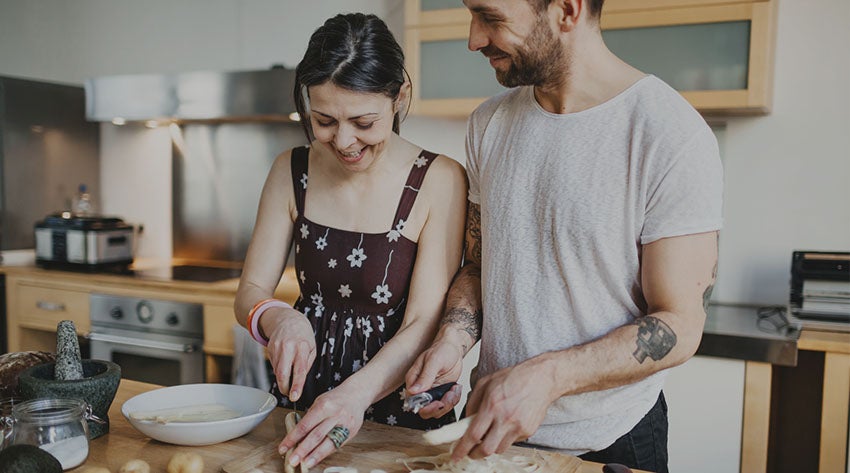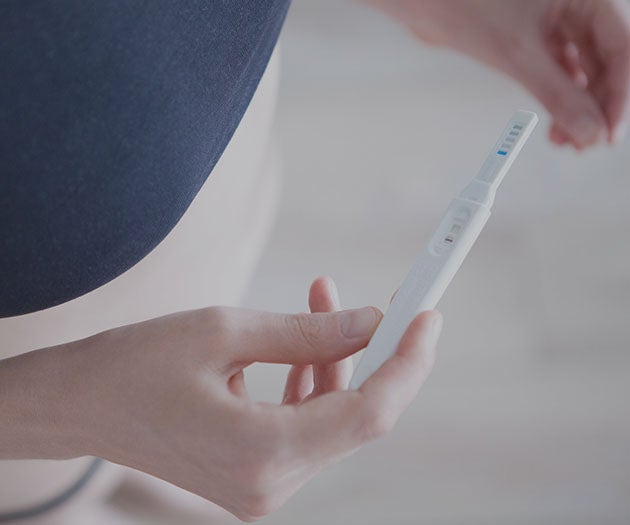We’re guessing by this point you’ve had ‘the talk’ and you know about the birds and the bees. But there’s a lot more to the whole baby-making thing. So, if you’re trying to conceive and looking for some extra tips we’re here to help you put a bun in that oven.
About 85% of couples achieve their goal within a year. For some it seems to happen instantly, for others it can take a little more patience. There are so many factors that come into play before we get anywhere near the opening scene of ‘Look Who’s Talking’.
If you’re trying, or thinking about trying, then there are a few things you can look at to help your womb welcome a little visitor.
Eating healthily when you’re trying to conceive
Could there be a better motivator for eating well than the fact it could help you have a baby? Your body needs all sorts of vitamins and minerals to conceive and then help carry the baby to full term.
Folic acid is really important. Healthcare professionals recommend you take 400mg of folic acid supplements a day to reduce the risk of miscarriage and to help baby’s brain develop. Good sources of folic acid are foods like broccoli and spinach, so eat up those greens.
Omega-3 fatty acids are said to help regulate all those hormones and normalise your cycle. It’s also worth your partner getting omega-3 to help encourage healthier sperm. Time for oily fish, nuts (especially walnuts) and seeds (like chia or flax).
Zinc is another good one for you both when you’re trying to conceive. It can increase his sperm count and help your egg production. Not enough zinc can mean a low libido – so crack open the egg box and stock up on whole grains and lean meats.
It’s a good idea to start taking prenatal multivitamins even before you’re pregnant.
Lifestyle choices
Trying to conceive is meant to be fun, right? But there are also some sensible actions you can take to help you conceive. They mostly involve giving up lots of things (for now anyway) and doing regular exercise - but it’s all for a good cause.
Too much caffeine can lead to hormonal imbalance. Try and limit yourself to two cups a day.
Boozing regularly can affect fertility, but a glass of wine or beer now and again should be fine. It’s worth knowing that alcohol can affect sperm too. Of course there are also other drugs that should be avoided, but we’re thinking that goes without saying. So when you’re trying to conceive, the odd quiet night in could be the way forward.
Smoking is another thing that hinders your chances of getting pregnant. If you were thinking of giving up anyway then now’s the perfect time.
Oh, and sorry to be the bearers of bad news, but there are a number of delicious foods you’re supposed to avoid when trying to conceive and after conception too. Trans fats can affect hormone production and foods like soft, unpasteurised cheeses can actually increase the chance of miscarrying. Find out more about what to avoid here.
It’s easier to conceive when you’re not carrying extra weight – which can cause hormonal imbalances. So try and keep active. Moderate exercise, say 30 mins each day is ideal. Even a bit of power-walking should do it.
If you have time, incorporate some sort of mindfulness activity like yoga or meditation into your week. After all, anxiety isn’t the best ingredient when you’re trying to get pregnant.
You and your partner
Apart from the obvious, there are some things worth doing together to help make conception easier and more fun.
Read books and blogs about other people’s experiences to help you prepare for yours.
This one might seem obvious, and you’ve probably already done this, but it’s a good idea to think about finances and space before you start trying. They might be small, but babies take up a surprising amount of space and they’re not cheap. A bit like a pug, except your baby might want to go to university later on, rather than just the park.
Finally take some time to relax and try not to stress about it. Some quality time here and there is good. A watched pot never boils and all that.
When to try
It’s a good idea to keep on top of your fertility with an ovulation calendar. Your window of fertility normally lies in the middle of your cycle, between the last day of your period and the start of your next one. Somewhere between days 10-15.
The egg can only be fertilised during ovulation so the best time to do the deed is two or three days before ovulation or the day after. Apart from using the calendar, your body can give off signs you’re ovulating; like a slightly higher body temperature.
But remember, this isn’t a military operation. It’s usually easier and more fun if you try and relax a little when preparing to get pregnant.
When to ask for help
If you’re having trouble trying to get pregnant, you’re not alone. About 3.5 million people in the UK have trouble conceiving, and 1 in 6 have similar difficulties in Ireland.
It’s not unheard of for it to take 12 months to get pregnant, even if you’re healthy. But if you’re under 35 and you’ve been trying for ten months then you might want to talk to a doctor. If you’re over 35 and have been trying for six months then it’s worth speaking to a doctor earlier because fertility drops after the age of 35.
If you’re concerned that you or your partner have fertility issues, then do speak to your GP. They can look into your health and see if there’s an underlying issue.
Stay positive, if it comes to it there are things like IVF or artificial insemination you can try. Take a look at the HSE guide to having IVF treatment.








